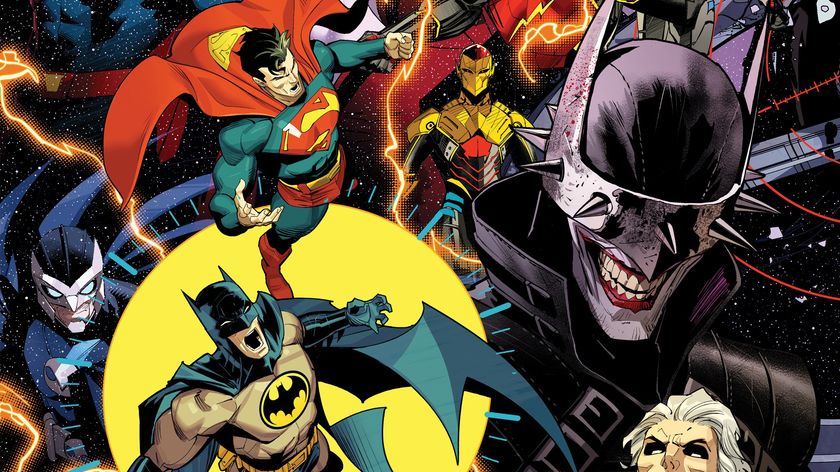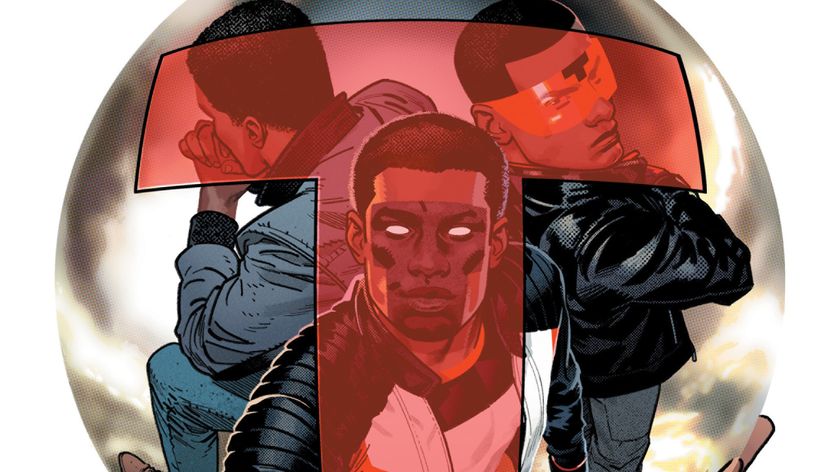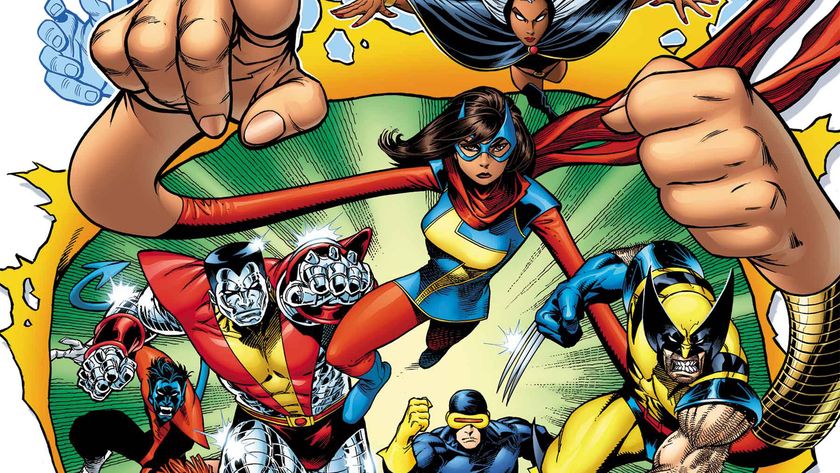Former DC publisher Dan DiDio on the New 52 vs Rebirth and why he 'hated' Wally and Dick
In part 2 of our interview DiDio reflects on the still-controversial DC reboot and wanting to kill Nightwing
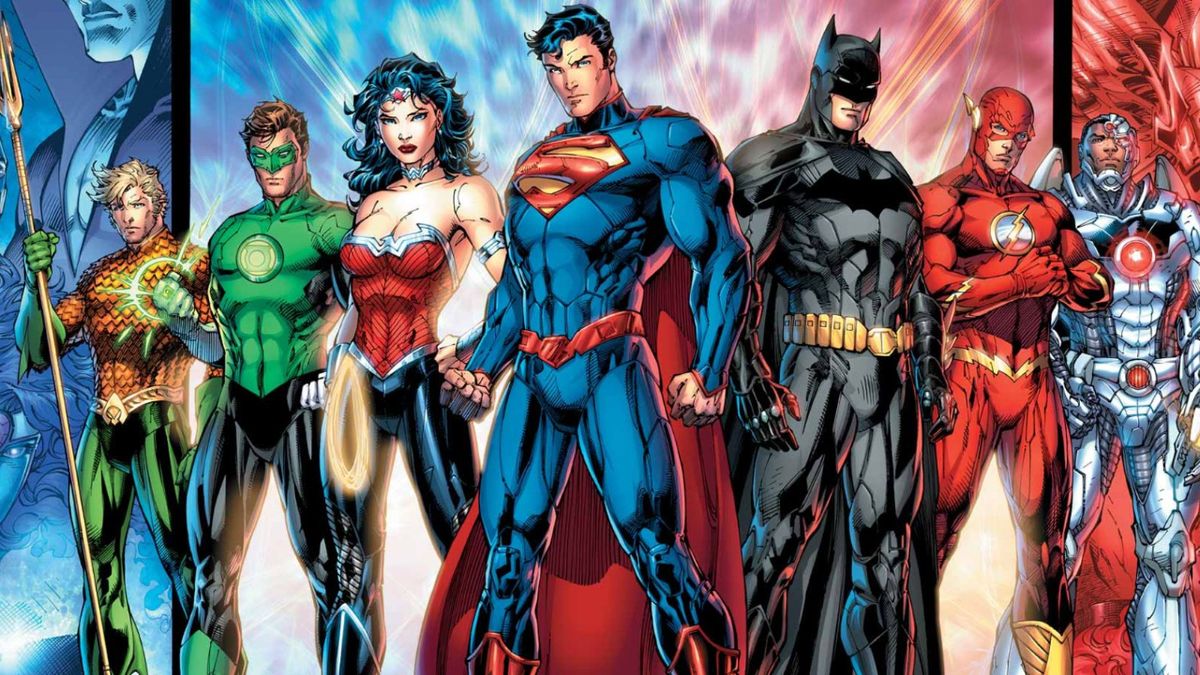
On February 21, 2020, DC co-publisher Dan DiDio's 18-year career with the comic book company ended suddenly and surprisingly.
A lifelong comic fan who landed in TV in the '80s, his DC connection began in 2002 with a co-writing gig on Superboy with friend Jimmy Palmiotti, which led to an editorial VP staff position and eventually the title of publisher.
We're looking back at the ups and downs of his long tenure with the venerable comic book publisher. In part one of our conversation we discussed his early years with DC, his way up the corporate ladder including the time he thought he was being fired but was instead offered a promotion, and why he didn't like Elseworlds and wanted to tell the best DC stories in the main publishing line.
In part two below, DiDio talks about his relationship with one of his predecessors - longtime DC writer-editor-president-publisher Paul Levitz, the publishing initiative he'll likely always be most closely associated with - the still-controversial The New 52, and just what the hell is his problem with Wally West and Dick Grayson anyway!
Newsarama: Dan, you've mentioned Paul Levitz a couple of times. Again, I don't want to put words in your mouth, but was he important to you as a mentor, or perhaps as something else to you in the time you were working together?
Dan DiDio: "Mentor" is an interesting word. I love comic book history. I think everybody knows that. I still, to this day, I still have my Amazing Heroes, my Comic Readers, my Comics Buyer's Guides, my Wizards, and all these things. I love absorbing information.
Paul wasn’t so much a mentor as he was this incredible encyclopedia of information that I constantly tapped into. I always wanted to know more, and he knew so much. I wanted to know the stories behind the stories, the logic behind these things, stories of the past, and see whether or not the old creators and editors’ logic matched what I assembled and believed just from reading about it. I would say I was right…maybe about 60% of the time. Talking to Paul was interesting, but it also helped me also clarify and understand relationships with the talent in addition to motivations and understanding.
Comic deals, prizes and latest news
Get the best comic news, insights, opinions, analysis and more!
The other thing that Paul would do is let you fail or succeed in your own right. He allowed you to make mistakes, which was beneficial because the whole purpose of me coming in originally was to come in with an outside perspective, not preconceived notions of everything. He let me do that. He let me make my own mistakes, and make my own victories. He let me be that person.
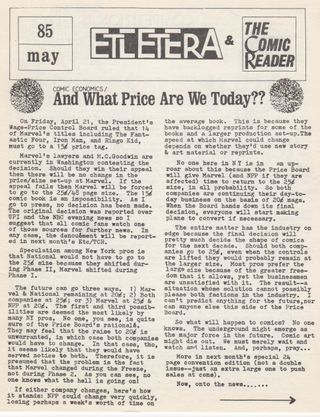
But don’t get me wrong, Paul had an opinion about everything. And he’d also let you know when he was wrong. He’d tell you, "Wow, I didn't think that was going to work. I'm glad it did." Or, "I really didn't like that book personally. I'm glad it sold." That type of thing.
Paul also showed me smarter ways to use opportunity. I came in full of piss and vinegar. "I’m gonna fix it all. I'm going to correct it all. I'm going to do it all!" Paul goes, "Okay, but if you got a book that sells 10,000 copies and you put all your time and effort into it, and you're going to fix it and you increase sales by 50%, now you’ve got a book that sells 15,000 copies. Still cancelation level.
"But if you find a book that sells 25,000 to 30,000 copies, and you put that same level of energy in it, you might have a book that sells 40,000 to 50,000 copies. Bigger win."
He was right. What we did is we started to cut the bottom of the list, where books were performing the best they could, with no way to get it higher. We eliminated those series and really concentrated on the books that we felt had opportunity.
That's where we started to really focus all of our time and energy, trying to improve the middle of the line. The middle section was where we were getting trounced by Marvel constantly. The goal was to attack the middle of the line, to strengthen that midsection, so you had a strong foundation, and then you can spin things out and cross things over when all the books were working well. You weren't trying to goose a book that sold 12,000 copies to sell 15,000 copies. No win there.
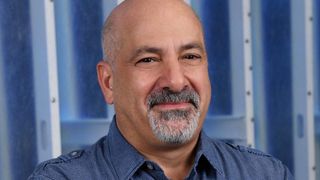
Nrama: Let me grab the thread you mentioned on "illusion of change." One of the things you probably will be most associated with is The New 52. That got five years before things changed into Rebirth and everything else.
When you're going into any big, line-wide event or branding, do you have a sense in mind of a shelf life? People always tell the world "it's going to be like this forever," but chances are, in five years, aren’t you going to have to course correct?
DiDio: Let me tell a separate story for a second, then I'll get back to your question. The separate story is I remember when we decided to retell the origin of a character in one of our books, a fan wrote me and said, "Why are you retelling that origin? You told it 20 years ago."
In comics in the old days, they used to retell the origin of the characters every year because they believed the audience was turning over. And our reality still is we hope we are doing things to continually attract a new audience. Whether it's there or not, you always hope to believe that new people are coming in.
The reality was we believed there was a chance for an opportunity there. Rather than doing a whole scale, world-changing, sweeping event that we've seen before, we wanted to do something [with New 52] that was a cold start and a new start again, just so it was the ultimate jump-on point.
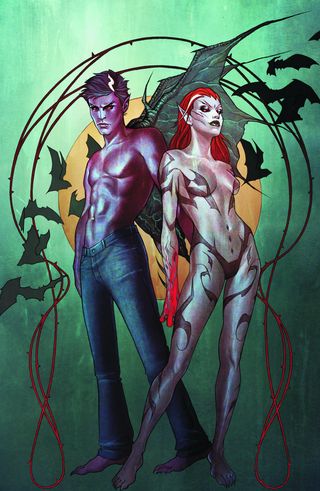
What I remember the most about the New 52 was everybody talking about, "What did you do with Superman? What did you do with Batman?” You forgot we had an I, Vampire book. We had a Frankenstein, Agent of S.H.A.D.E. book. Those are the things that excited me the most. Those are the things that are missing from comics today, that level of risk-taking with crazy ideas out there.
That's why, when people do a direct comparison between New 52 and Rebirth, they say, "Well, look, Rebirth sold better." I say, "Sure it did, on paper," because Rebirth double-shipped all your bestselling books. It took your 20 top-selling books and double-shipped them.
The New 52 took 52 titles, out of which half of them were books that either nobody had heard of before or had characters people never even thought deserved to get a title. Maybe they didn't, but g-dammit man, it's worth the chance.
I'd rather try a Mister Terrific or Voodoo or O.M.A.C. book than I would double ship other things just because I know it's going to sell. The chance for the win on something else is greater. That's the type of product that always got me most excited.
What was your question again? I was on my soapbox.
Nrama: More than anything, are you conscious that when you say, "Okay, here's the New 52. It's going to be like this forever," that somewhere in the back of your head it's really like, "Eh, in five years, we're going to have to shift to something else."
DiDio: As an executive in a company, I'm telling you that if I can guarantee five years of strong sales, and then we're going to have to shift it after five years, you're going to go for the guarantee of the five years of strong sales and a change later down the road, rather than putting it on cruise control and hoping for the best continuing on.
Ultimately, something was going to have to change or something was going to have to evolve. If you look at comics, now you have an event a quarter, not even every year or every few years. Now you got yourself in a cycle. The problem is, you're constantly in a cycle now, and you can't get off that treadmill, because you're constantly trying to the top yourself or trying to maintain artificial highs. With New 52, my hope was that we were able to leave it there. If we got five years of storytelling out of it, then I think I consider that's a win.
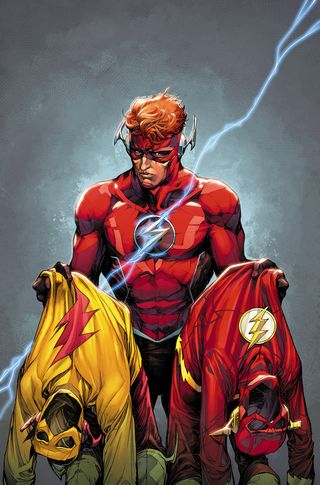
Nrama: You drew a fair amount of fan heat for being the guy who theoretically hated Dick Grayson or Wally West. Is this indeed the case? Or was it just pro wrestling, drawing heel heat?
DiDio: A lot of it was for show. It was theater. We used to do the conventions and we used to have people worked up about Dick Grayson and Wally West, so we fed into that energy. Anytime I go to a convention and we talk about character, I consider that a win.
So much of the conversation nowadays is not about character or story anymore, which is a shame, because that's the only conversation that should be taking place.
For me, Wally West was a core concept issue. My problem with Wally was that his origin was always dependent on [his uncle and previous Flash] Barry Allen. He was never his own character. He was always going to be subservient to Barry in some way because his origin was determined by Barry. There was always a Flash in front of him and his powers were because of him. I always felt, as a true Flash, if we were trying to get to the simplest form with regards to media and things like that, we had to go back to Barry because the story starts with him.
With [original Robin] Dick Grayson — and this is the same with Wally — people loved them because they aged with them, so they feel this affinity that these guys have grown up with them. The problem is that much like Batman and Superman, now Dick Grayson and Wally West have to stop aging, because they're going to pass their mentors. Dick Grayson's going to get older than Bruce Wayne at some point, because Bruce doesn't age and Dick Grayson's going to be the older guy if he does keep growing up. Therefore, those things constantly force the reboots that we're faced with, because it creates these log jams and these multiple interpretations of characters all sharing the same name.
Ultimately, in my mind, we kept on collapsing our timelines and created confusion about how long certain characters were in certain roles, and what they did in those roles. For me, with Dick Grayson, the issue wasn't about the fact that I didn't like the character. In fact, when I said we should kill Dick Grayson, it was purely story driven.
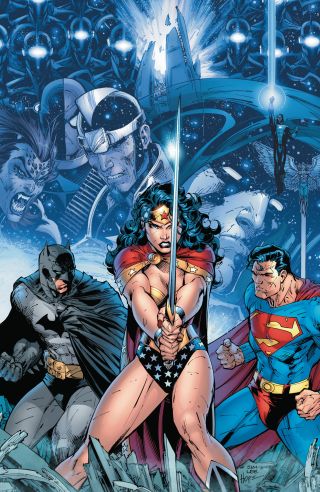
We were in the middle of Infinite Crisis. The driving point of Infinite Crisis is the fracturing of Superman, Batman, and Wonder Woman, and their inability to work together fractures the impact of the other heroes. I needed a defining moment that would bring these three together after all the troubles, something that they can unite over.
I felt the death of one of the characters that touched them all in a way was going to be the perfect way to do that. Dick Grayson was that character. I felt he was the character that everybody had such a great affinity and love for.
By putting him in that role that if he died, he would bring Superman and Batman together again and unite our heroes against the great threat, I think that's a noble death, and I think that's something that had value. Same type of death happened in Crisis on Infinite Earths. You want to have that level of importance.
Think about it: In Crisis on Infinite Earths, they kill Barry Allen, they kill Kara Zor-El, two major characters in the DC Universe. I figured we needed to do something that would be the sequel to that story and we needed a death of equal weight of that character.
[end of part two, check out part one and part three here]
—Similar articles of this ilk are archived on a crummy-looking blog. You can also follow @McLauchlin on Twitter
Most Popular







